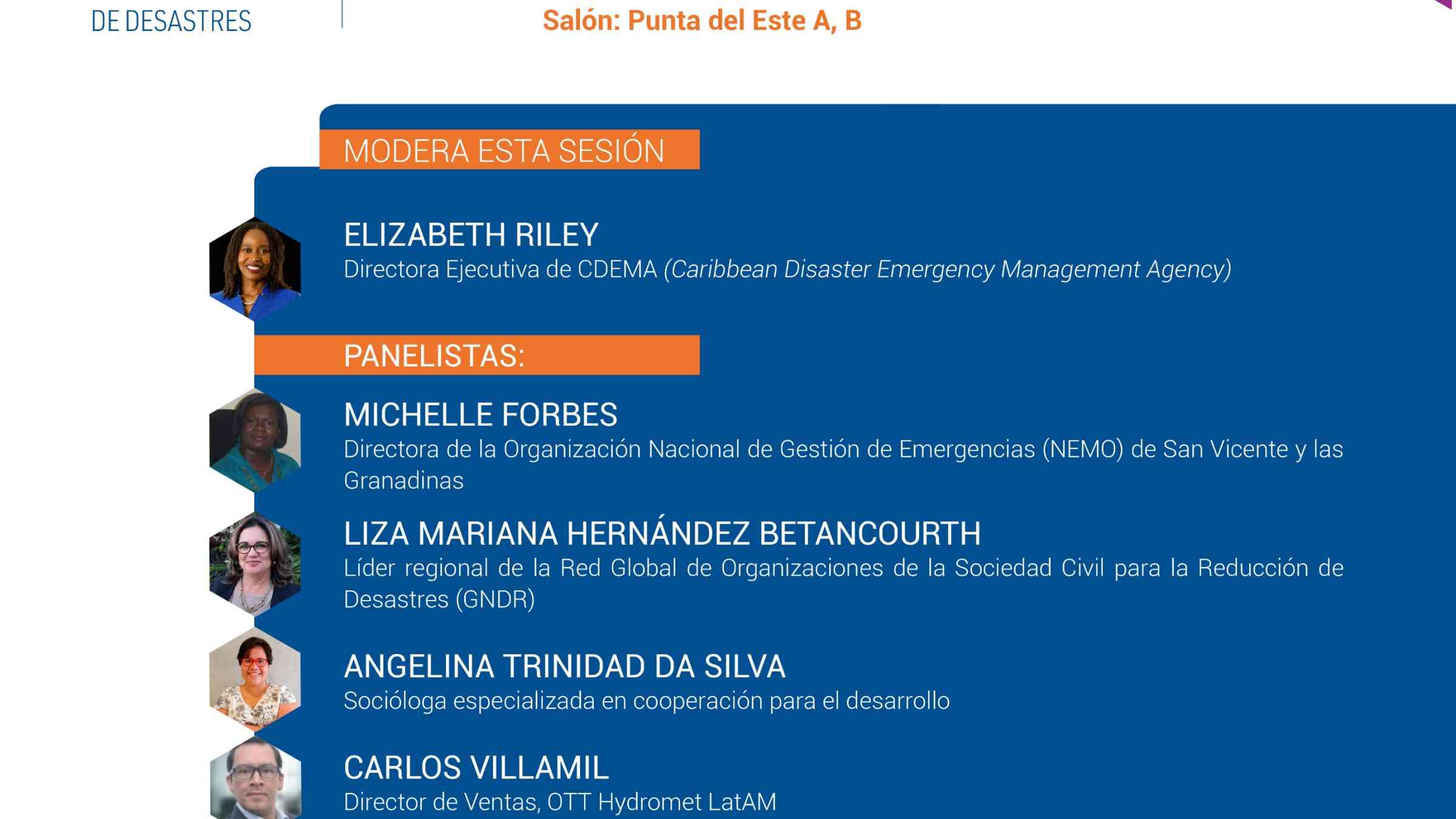PARALLEL SESSION: Multi-Hazard Early Warning Systems: Leaving no one behind
In September 2021 UN Member States adopted the 2030 Agenda for Sustainable Development, with the pledge that “no one will be left behind” and to “endeavor to reach the furthest behind first”. This principle is ingrained in Target G of the Sendai Framework for Disaster risk reduction which is to “Substantially increase the availability of and access to multi-hazard early warning systems and disaster risk information and assessments to people by 2030.” Early warning saves lives, however one-third of the world’s people, mainly in the least developed countries and small island developing states, are still not covered by early warning systems. Access to EWS is not homogeneous. In ensuring that there is coverage however, explicit action must be taken to reach the poorest of the poor, curb inequalities, and confront discrimination to fast-track progress to ensure that all persons can access, understand and have the capacity to respond to the warnings. This is the last mile of an effective MHEWS which has three critical components: multi-hazard, people centered and end to end. Recent disasters in the Caribbean and the Americas highlight the need to scale up actions that ensure EWS are inclusive. Vulnerable people, including disadvantaged people groups, undocumented migrants, older persons and persons with disabilities, women, and children among others must not be left behind.
Session objectives
- To highlight the importance of leaving no one behind- addressing inclusiveness and diversity in EWS.
- To highlight who is being left behind and why (the key drivers) in the context of the Caribbean and the Americas.
- To demonstrate how science and technology can be leveraged to bridge gaps in access- inequalities.
- To show progress being made to ensure EWS reach the most vulnerable, to address inequalities and discrimination.
- To provide recommendations to bridge the gap in EWS to ensure that no one is left behind, including to address the role of youth.

